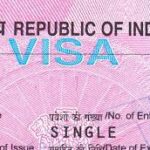The United States, often hailed as the land of opportunities, beckons individuals from around the world for various purposes, be it business ventures or leisurely visits. For those seeking entry into the country, understanding the distinction between a Business Visa and a Visitor Visa is crucial. These two categories serve distinct purposes, each catering to the specific needs of travelers.
Business Visa for the US
A Business Visa, commonly known as the B-1 Visa, is designed for individuals intending to visit the United States for business-related activities. Business Visa FOR US This visa category allows foreign nationals to engage in a wide range of professional pursuits, such as attending conferences, negotiating business deals, and participating in educational or professional conferences and seminars.
To qualify for a Business Visa, applicants must demonstrate the purpose of their visit and provide evidence of their intent to return to their home country after the completion of their business activities. This visa does not authorize individuals to undertake gainful employment or establish a permanent residence in the United States. Instead, it serves as a gateway for temporary business-related visits.
One of the advantages of the Business Visa is its flexibility. It accommodates a diverse range of business purposes, making it suitable for entrepreneurs, professionals, and individuals engaged in international commerce. However, it is essential for applicants to carefully adhere to the terms and conditions of their visa to avoid any legal complications during their stay in the United States.
Visitor Visa for the US
On the other hand, the Visitor Visa, categorized as the B-2 Visa, is tailored for individuals seeking entry into the United States for tourism or personal reasons. Visitor Visa FOR US This visa allows visitors to explore the country’s cultural and recreational offerings, visit family and friends, or undergo medical treatment. The B-2 Visa is not intended for gainful employment or long-term stays, emphasizing the temporary nature of the visit.
Similar to the Business Visa, the Visitor Visa requires applicants to provide evidence of their ties to their home country, ensuring that they have a valid reason to return upon the expiration of their authorized stay. It is crucial to note that individuals holding a Visitor Visa are prohibited from engaging in any form of employment or academic study during their visit.
Key Differences and Considerations
While both the Business Visa and Visitor Visa share some commonalities, such as the requirement to demonstrate ties to one’s home country, they serve distinct purposes. Choosing the right visa category depends on the nature of the planned activities in the United States.
Business Visa holders may engage in activities directly related to their professional pursuits, attending conferences, meetings, or negotiating business deals. On the other hand, Visitor Visa holders are limited to activities of a personal or recreational nature.
In conclusion, whether one seeks entry into the United States for business or leisure, understanding the nuances of the Business Visa and Visitor Visa is essential. Careful consideration of the purpose of the visit and adherence to the visa regulations ensure a smooth and lawful stay in the land of opportunities. By navigating the path wisely, individuals can make the most of their time in the United States, whether for business endeavors or memorable personal experiences.








